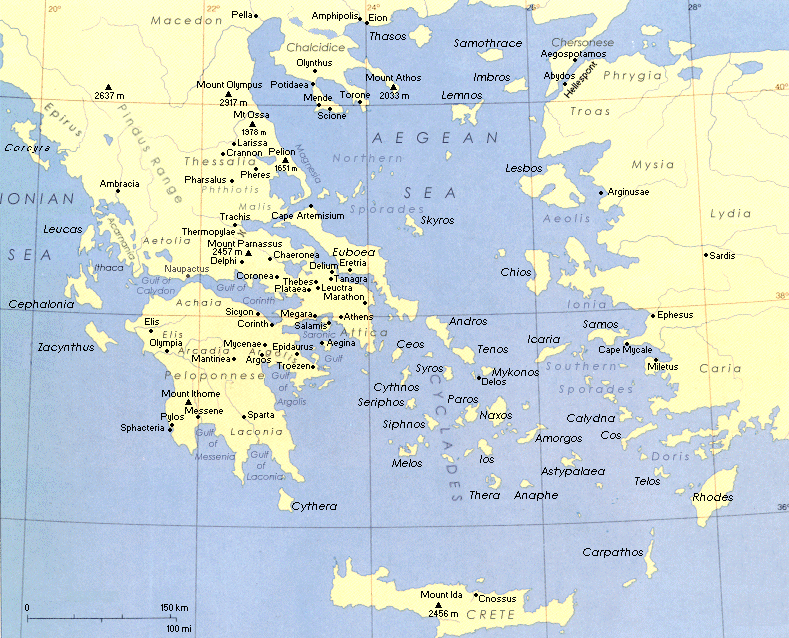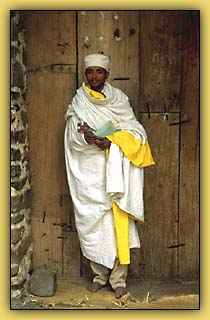I won't do it in Russia.
I will be left with dreams about the show.
Some shadows of it is here...
For somebody else to dream.
|
Oedipus: "Life ends where it begins."
NEW:
 ShowCases: 3 Sisters, Mikado, 12th Night, Hamlet, The Importance of Being Earnest, Dangerous Liaisons, Don Juan SummaryPrologue: Thebes turns to Oedipus to save them again by ridding them of a terrible plague. Sophocles may have written this play shortly after a great plague which struck Athens.Oedipus Rex (Oedipus the King, Oedipus Tyrannus) (about 429--425 BC)
* Oedipus hyperlinked * NotesI do not know what to think about my own life, myself, my times. What about my identity? My home and my grave? How different am I from Oedipus? "You know nothing," is the message. Very simple, straight, final. Do you want to know more, Anatoly? More horrible discoveries and revatations? Do you need another confirmation that you are blind? That you never knew yourself? Curse? No, it's not about Oedipus, or the boy Ariston, it's about everybody. It could be you... It is you. Setting• Characters • Conflict • Plot • Themes • Mood • Background Information • Literary/Historical Information • Historical Context Of The Play Sophocles is credited with a number of innovations: 1] According to Dicaearchus of Messina, he introduced the third actor.
Prologos, the prologue, usually exposition which provides information on events which happened just prior to the play, and establishes the point of attack, or the point in the story where the play begins.
* The subjects of tragic drama, Aristotle said, were rightly drawn from ancient mythology, because coming from that source they must be true. If man had invented such strange incidents, they would have appeared impossible. The chief characters of a tragic action should be persons of consequence, of exalted station. The leading personage should not be a man characterized by great virtue or great vice, but of a mixed nature, partly good and partly bad. His errors and weaknesses lead him into misfortune. Such a mixture of good and evil makes him seem like ourselves, thus more quickly arousing our sympathy. The course of the tragic action should be such as to saturate the spectator with feelings of compassion, drive out his petty personal emotions, and so "purge" the soul through pity and terror (Catharsis). The crimes suitable for tragic treatment may be committed either in ignorance, or intentionally, and are commonly against friends or relatives. Crimes committed intentionally are generally the more dramatic and impressive. (This in spite of the fact that the central crime in Oedipus the King was committed in ignorance.) As to style, a certain archaic quality of diction is needful to the dignity of tragedy. The Theban Times [radio] Issue 1 Volume 1 Teiresias Pays a Visit The prophet Teiresias paid Thebes a special visit today. King Oedipus had sent Creon to bring Teiresias to Thebes. According to the royal sources, Teiresias was extremely reluctant to come. Furthermore, he angered the king so much that His Highness lost his composure. With Thebes still suffering from this mysterious plague, King Oedipus is asking for help from any sources. When Teiresias came to Thebes, he uttered some mysterious words that apparently angered the king. At first, he refused to say anything at all, stating: "Let me go home. Bear your own fate, and I’ll bear mine." His Majesty refused to accept Teiresias’ plea and demanded Teiresias to speak. King Oedipus even pleaded to Teiresias to reveal the truth, but Teiresias was relentlessly silent. Losing his patience, Oedipus began calling Teiresias a "wicked old man." He even began accusing the blind prophet of assisting in King Laius’ murder by keeping silent. In turn, Teiresias had the nerves to declare to King Oedipus: "You yourself are the pollution of this country." He actually accused Oedipus of being the killer who brought this plague upon us. This angered Oedipus so much that he lost control and called Teiresias a "sightless, witless, senseless, mad old man." This was quickly turning into a verbal brawl. In order to avoid a worse confrontation with Oedipus, Teiresias started to leave. However, before he left, he uttered a strange prophecy that baffled both the royal court and Oedipus. He said: "The man you have been looking for all this time, the damned man, the murderer of Laius, that man is in Thebes. To your mind he is foreign-born, but it will soon be shown that he is a Theban, a revelation that will fail to please…And he will go tapping the strange earth with his staff, to the children with whom he lives now he will be brother and father-the very same; to her who bore him, son and husband-the very same who came to his father’s bed, wet with his father’s blood." Nobody could make any sense of what Teiresias is saying. Teiresias’ prophecy is a cryptic one. After his fruitless meeting with Teiresias, Oedipus returned home, discouraged. Meanwhile, ten more unborn babies have died and whole herds of sheep are lying dead in the fields. The sheep will be burned early tomorrow morning. A special memorial for the babies is scheduled tomorrow night. The search continues for King Laius’ killer. [ to be continued ] 
Shrew poster * GODOT.06: Doing Beckett => main stage Theatre UAF Spring 2006 * Stravinsky:
Pasolini: 1967
...
|
Oedipus
2005: The Game"Show me the man whose bless is more than illusion, followed by disillusion." Oedipus in King Oedipus, Sophocles.Aristotle believed this was the finest tragedy because the protagonist's recognition of the truth coincides with the reversal of his fortunes.
[ Sophocles (496-406 BC) wrote about 125 tragedies. Only seven are left. His plays are calm and nobly tragic, expressing the "golden mean" of Greek philosophy. Sophocles was the first dramatist to use a third actor. Perhaps his greatest play is `Antigone', which retells, in part, the ancient, tragic Oedipus legend. ]A Translation
by
D.W. Myatt 
CHARACTERS
Major CharactersKing Oedipus - the king of Thebes. A man ruled by a fate, according to which he is to murder his father and marry his own mother. Oedipus is unaware of the fact that he has already committed these dreadful acts. He is highly intelligent, short of temper, and impetuous.
Jocasta - the queen of Thebes. She is Oedipus' wife as well as his mother but is as ignorant about the latter fact as is Oedipus. She is a good and loving queen who does not hesitate to speak her mind.
Creon - Jocasta's brother. He is a responsible and loyal Theban citizen. Judicious, rational, and consistent in nature, he acts as a foil to the more impulsive Oedipus.
Tiresias - The blind prophet of Thebes, Tiresias has been blessed with immortality. He is the only one in Thebes who is aware of the facts of Oedipus' life.
Chorus - The Chorus plays a very important role in Greek tragedies by providing background information, commenting on the action of the play and revealing the psychological and emotional tenor of the action. In Oedipus Rex, the chorus is formed of Theban citizens who witness Oedipus' tragedy. They are a link between the actors and the audience because they voice the emotions, anxieties and concerns of the people watching the tragedy.
Minor Characters
A Corinthian Shepherd - An old man from Corinth, who brings the news of the Corinthian king's death. He is also the man who had presented the infant Oedipus to the Corinthian ruler after he had been abandoned by the Theban shepherd.
A Theban Shepherd - another old man who was a confidante of King Laius. He is the sole witness of Laius' murder and also the one to hand over the infant Oedipus to the Corinthian Shepherd.
[ Although both these shepherds are minor characters in the tragedy, they do play a major part in unraveling the mystery of Oedipus' birth and Laius' murder. ]
The two daughters of Oedipus - Antigone and Ismene make an appearance in the play although they are not assigned any dialogue.
A messenger, priests, attendants are the other minor characters.
Scene Summaries with Notes
• Prologue And Parodos
• Exposition And First Stasimon
• Rise In Action
• Climax
• Exodus
Oedipus Rex can be divided into a Prologue; an Exposition (First Episode); Rise of Action (Second Episode); Climax (Third Episode) and Exodus (Fourth Episode). Each episode ends with a stasimon, or a choral ode.
PS
Oedipus already got five different logos: Kubuki (style) -- chorus, Sophocles (Antiquity, classsic), Sphinx -- fate, David -- man, mask -- Anti-Oedipus [all are different directions for the show] ...
NB

Before the show -- Waiting: Before the palace of Oedipus in Thebes. Suppliants of all ages are seated on the steps of the altars. Oedipus enters, in the robes of a king: for a moment he gazes silently on the groups at the altars, then speaks. (Should the chorus be there from the time we open the house?)

Next: cast
"You freed us from the Sphinx, you came to Thebes and cut us loose from the bloody tribute we had paid that harsh, brutal singer. We taught you nothing, no skill, no extra knowledge, still you triumphed" (44-47).


1.22.05. I will be updating all pages, but the page new is to point at the changes (Picasso' Oedipus -- left).
The cast exchange is @ http://groups.yahoo.com/group/3sis (cast & crew must subscribe, but all are welcome to participate).
This is the last show I keep my production notes online.
I need a break to finish all the directories I already have (see SHOWS). I plan to use them as the case-study web=books for classes I teach. And I am way behind...
The eGroups for electronic communication with the actors still will be used in the future.
I teach Fudamentals of Directing -- and this directories will have many references to Oedipus.
Student-directors will be involved...
No webcast this time, but I will try to use the webpages as much as possible.
More after the "table period" = first week of (open) rehearsals, starting Mon. 1.24.05
Good luck!
Anatoly
Oedipus (1896) [poem: Oedipus (1906) - poem by K.P. Kavafis]
Written after reading the description of the painting Oedipus and the Sphinx by Gustav Moreau
The Sphinx has fallen on him
with her teeth and nails outstretched,
and all the savagery of life.
Oedipus collapsed beneath her first assault,
her first appearance terrifying him -
he'd never dreamt of such a form or
such a voice 'til then.
But though the monster rests
her paws upon his chest,
he quickly pulls himself together - and he
isn't frightened any more, because he's got
the answer ready, and will triumph.
Yet he takes no joy in victory.
His melancholy-laden gaze is not
upon the Sphinx, but far away, upon
the narrow road which leads to Thebes,
and which will finish at Colonus.
And in his mind a clear foreboding
that the Sphinx will speak to him again
with riddles that are vaster, and more
difficult, and answerless.
Theban Times **

chorus...
Sophocles' "Oedipus at Colonus" 1984
...
...
